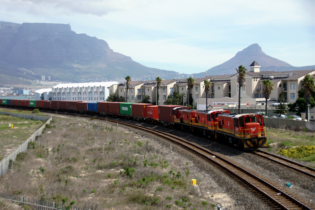The South African National Roads Agency Limited (Sanral) remained silent on Tuesday over the ruling by the Pretoria High Court which brought the Gauteng e-tolling project to a halt.
On Saturday, Judge Bill Prinsloo granted an urgent interdict to stop the protested tolling project which would have slid into effect on April 30. Sanral has not responded to the ruling to indicate whether it would appeal or dispute the decision. The interdict was brought by the Opposition to Urban Tolling Alliance. Pieter Conradie, the attorney acting on behalf of the alliance, said the government would have to consider whether it would apply for leave to appeal the matter. “I am of the view that another court will not arrive at a different decision as that of Judge Prinsloo and that the government will have difficulty in persuading Judge Prinsloo to grant them leave to appeal,” said Conradie. He said considering the public outcry and opposition towards the tolls, it would also be insensitive of government to apply for leave to appeal. “In view of the opposition to the e-tolling by the people of Gauteng and also the people of South Africa, the government should carefully consider whether it wishes to take the court process further and whether it should not rather scrap the e-toll system and introduce something acceptable to the people of Gauteng,” said Conradie. He said as the ruling stood, people had no obligation to purchase e-tags and those who had done so already could be refunded. “The public purchased the e-tags with the understanding that e-tolling will be implemented on April 30. This did not happen and may not happen for many months or may never happen.” Conradie said it could not be determined how low e-tolling would be put on hold for as it would also depend on what decisions the government decided to make. The process for the alliance to acquire all court documents from the government could take up to two to three months, he said. Since the interdict was granted, the alliance would wait for government to submit to it all the records of the documents which were considered by all government ministers who were involved in determining how e-tolling would proceed. “The record will entail, for example, correspondence, reports, memoranda, documents, evidence, transcripts of recorded proceedings and other information which were before the respondents.“The review process entails that, we now await for the record and when we are satisfied that we are in possession of a full record, the applicants are entitled to file supplementary affidavits,” said Conradie.
“With regard to the contract between Sanral and the e-tolling consortium, a copy will be requested as part of the record as surely the minister of transport should have considered any agreement between Sanral and foreign contractors, as such agreement must have an effect on the price for using the roads to be paid by the public,” he said. Conradie said only when all affidavits had been filed that an application would be made to court for a court date for the review application to be heard. After the ruling was made the department of transport said it would study it. “We respect the decision… We will study the ruling thoroughly and decide on the next course of action,” the department said. The decision to halt e-tolling was welcomed by some organisations and political parties. Business Unity South Africa (Busa) said more time was needed to address the regulatory and cost implications of e-tolling. Busa’s deputy chief executive Raymond Ackerman said further engagement by the department of transport and Sanral was needed to ensure that the final arrangements were more broadly acceptable. The Democratic Alliance said the decision allowed for the opportunity to have e-tolling eliminated. “We trust that during the review process all the financial facts… will come to light and we will learn who stood to make money out of this project,” the party’s transport spokesperson Neil Campbell said. On Tuesday, Cosatu said it would continue to fight against the proposed e-tolls. Spokesperson Patrick Craven said Gauteng’s toll road project was put on hold after Cosatu held discussions with the ANC. “We are happy to announce that in our discussions with the ANC we agreed that we must postpone the implementation of the e-tolls in Gauteng for a month whilst we work on alternative funding methods,” Craven said.






